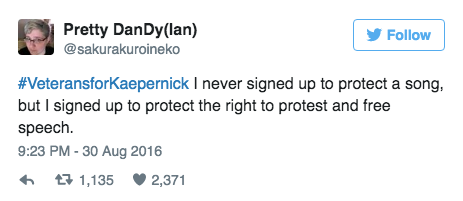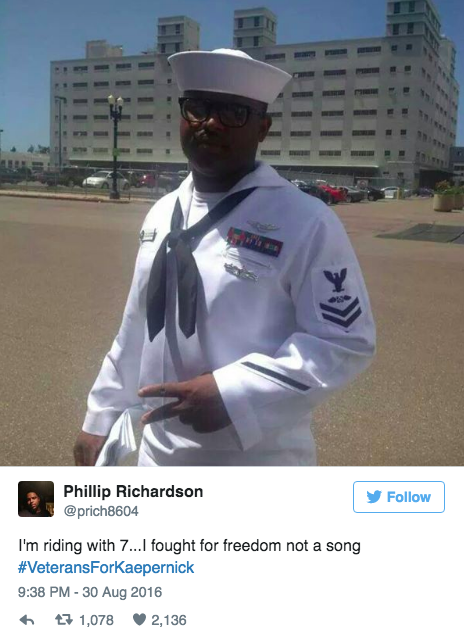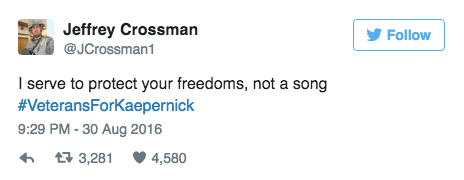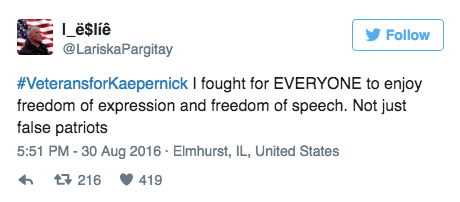Military veterans are using the hashtag #VeteransForKaepernick to show their support for Colin Kaepernick, a San Francisco 49ers quarterback who chose not to stand during the national anthem before a game on Aug. 26.
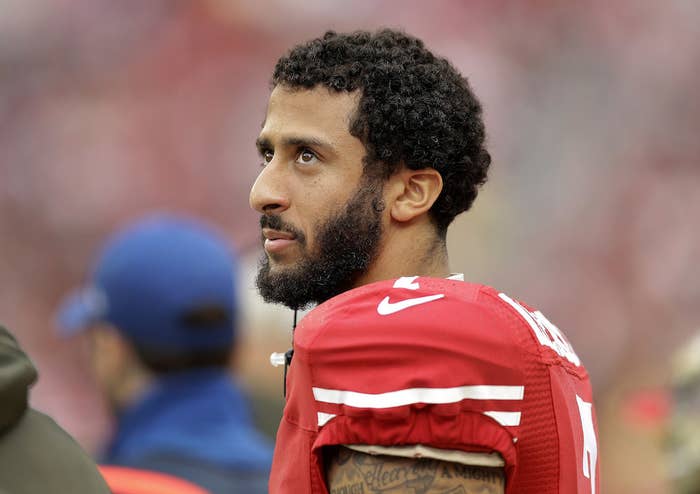
Kaepernick said the protest was his way of shedding light on racial inequality and police brutality in the US.
“I am not going to stand up to show pride in a flag for a country that oppresses black people and people of color,” he said in an interview with NFL Media on Aug. 27.
“To me, this is bigger than football and it would be selfish on my part to look the other way. There are bodies in the street and people getting paid leave and getting away with murder," he added.
Kaepernick’s decision garnered a wide range of positive and negative reactions. Several people — including other NFL players — who criticized his decision said that not standing during the national anthem was a sign of disrespect to service members who fight for the country’s freedom.
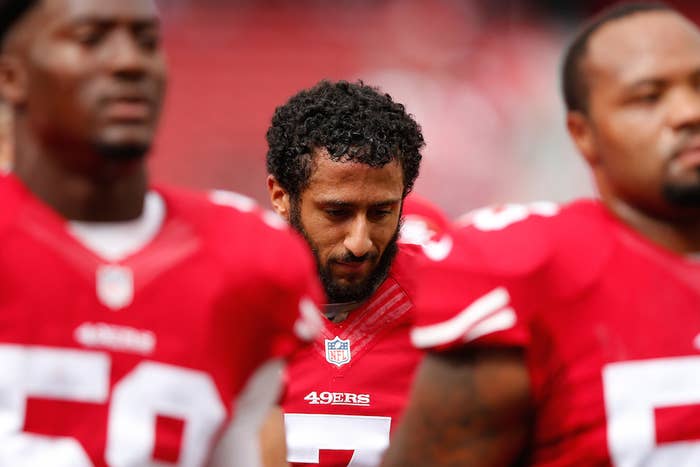
Marcus Newsome was first person to tweet the hashtag on Aug. 28. Having served in the Army from 2000-2011, he told BuzzFeed News that he had grown frustrated by the discourse surrounding Kaepernick's protest.
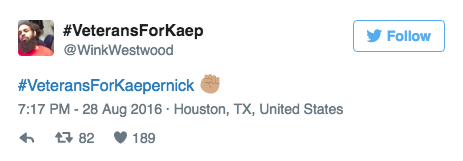
"I started the hashtag because as soon as I started hearing that NFL players didn’t like what Kap did and were referencing the flag and troops, when it was Kap’s First Amendment right, I really took offense," Newsome said.
He said he was also frustrated by people who never served in the military who he felt were "using vets as the scapegoat to fuel their argument against Kap’s stance."
"Despite the fact that we’ve had historic angst with how we’ve been treated when we come out the military, and some of the treatment we face when we’re in the military," he said.
Hundreds of people on Twitter who served in the military chimed in, using the hashtag to discuss the reasons they support what Kaepernick did.
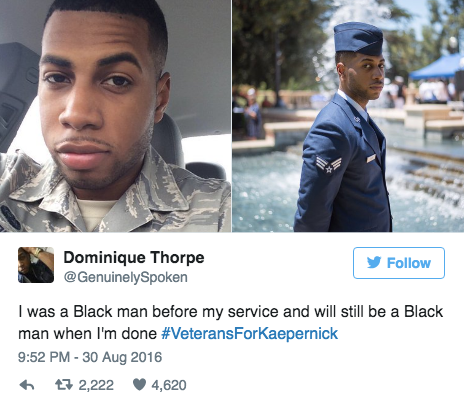
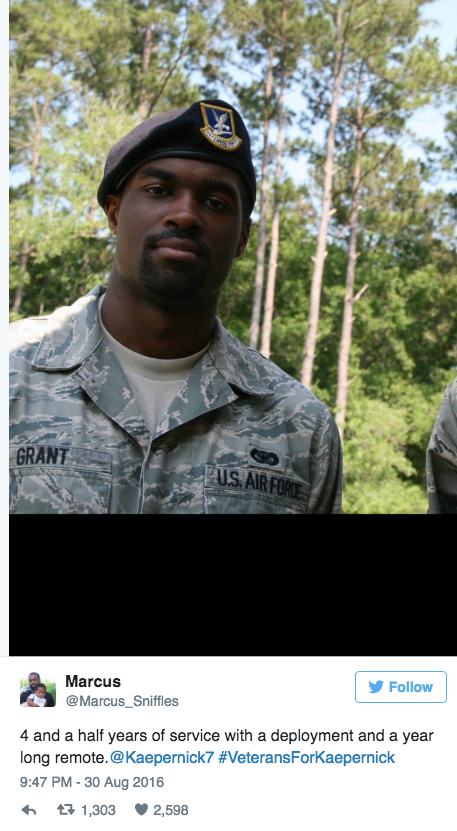
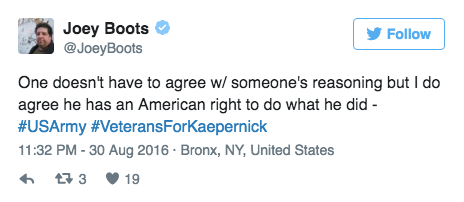
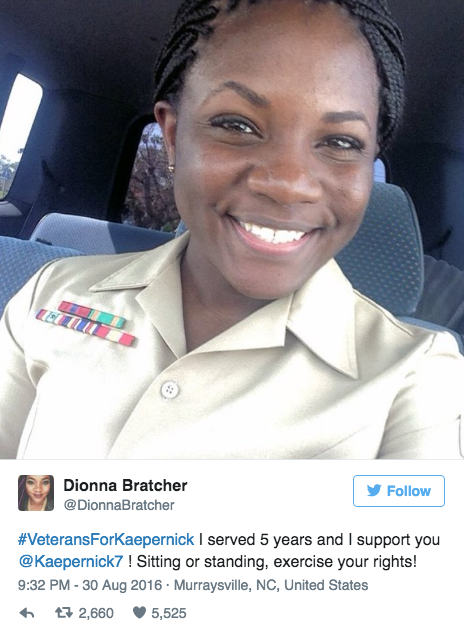
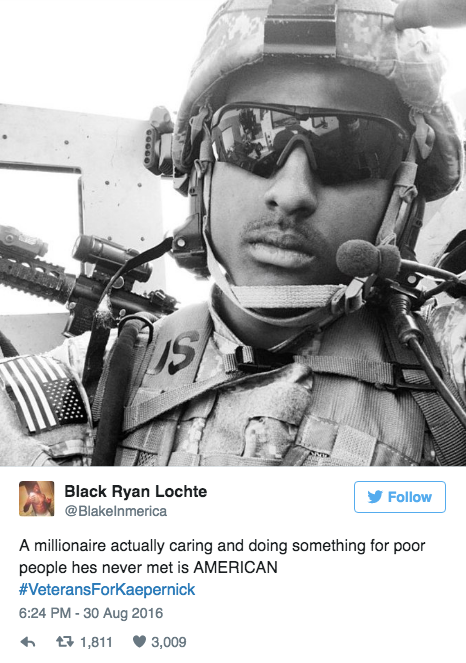
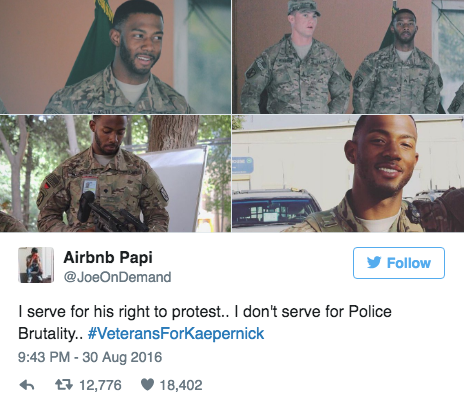
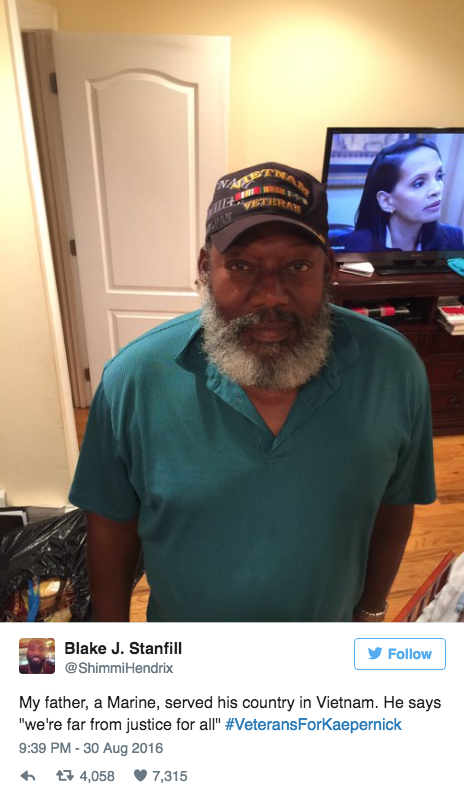
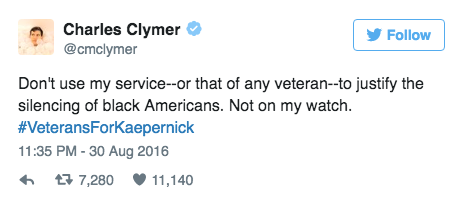
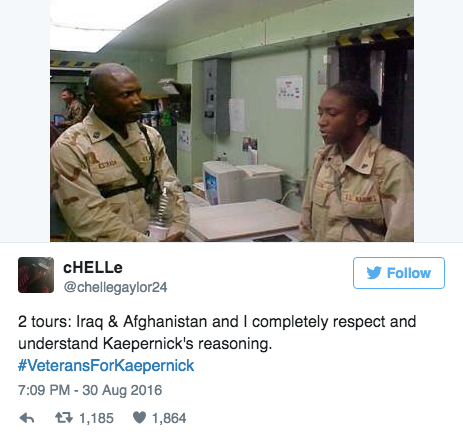
Others called out non-veterans they felt were expressing opinions on their behalf.
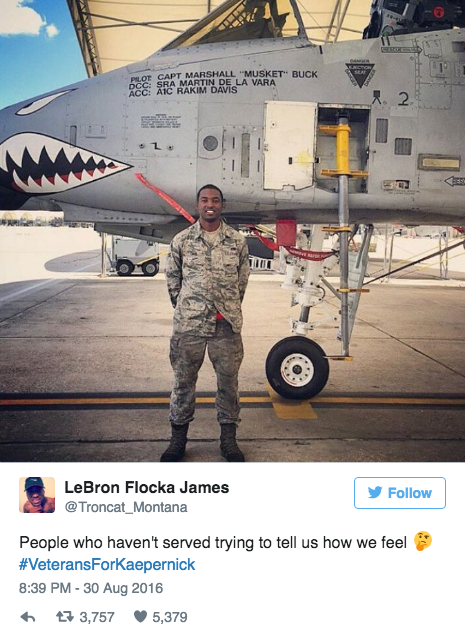
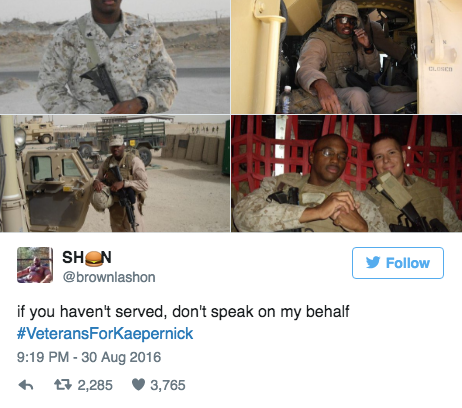
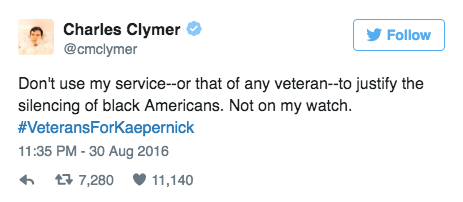
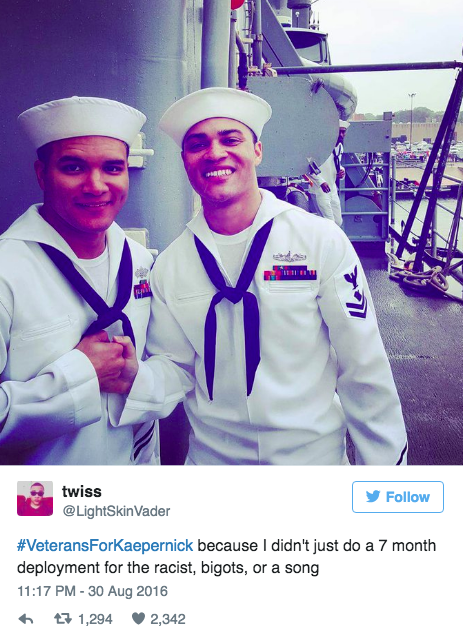
Many veterans said that fighting for Americans to exercise the right of free speech was more important than the national anthem itself.
